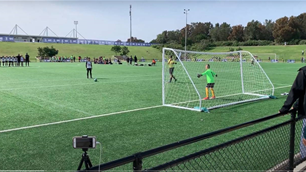Change for change's sake gives false hope.
The return of John Kosmina to Adelaide United has been a dramatic demonstration of the positive effect a change of coach can have on a struggling team, and whilst Melbourne Victory fans will be hoping the appointment of Jim Magilton has the same impact the history of the A-League indicates this is not always the case.
Far from being a trigger happy environment the A-League has seen relatively few mid-season changes of coach. In the seven seasons of the competition there have been nine coaches who have been sacked or resigned during the season. All bar one were due to poor results with Frank Farina dismissed from Brisbane Roar after being charged with drink driving.
The effects of the nine sackings and resignations on performances have been mixed and have not always had the immediate desired impact. The two most successful have been when Gary van Egmond took over from Nick Theodorakopoulos at Newcastle Jets and when Kosmina replaced Branko Culina at Sydney FC. Van Egmond took over from Theodorakopoulos after he had won none of his seven matches in charge, and led the Jets to the finals by winning eight and drawing three of the 14 remaining matches of the 2006-2007 season. At Sydney FC Kosmina guided the club to a similar turnaround winning six and drawing five of the 12 matches he was in charge for after Culina had won just twice in nine games. Kosmina has again managed to turn around a struggling side winning two and drawing two of his four games in charge after Rini Coolen could manage just two wins and four draws in his 11 matches this season.
The sacking of Ron Smith and the appointment of Dave Mitchell at Perth Glory also saw results improve. Having not won in 11 games under Smith, Mitchell guided the team to four wins and two draws in the 10 matches he was in charge for in the 2008-2009 season.
Two of the eight changes had very little impact. When Miron Bleiberg resigned and was replaced by Frank Farina at Brisbane Roar things stayed much the same for the remaining nine games of the season. The same was true when Alan Vest replaced the sacked Steve Mahon at Perth Glory in season one of the A-League with results carrying on in a similar way.
In two cases things actually got worse. When Dave Mitchell decided to step aside and let Ian Ferguson take the reins at Perth Glory their difficult start to the season went from bad to worse. Mitchell had won two and drawn three of his nine games in the 2010-2011 season with Ferguson managing just one win, three draws and 13 losses for the remainder of the campaign. Ange Postecoglou struggled to get the best out of Brisbane Roar initially when taking over Frank Farina. Postecoglou managed just four wins in his 17 matches in the 2009-2010 season after Farina had won three and drawn three in the opening 10 games before he was dismissed.
Whilst he may have struggled initially the rest is history for Postecoglou, who with time was able to implement his ideas and turn Brisbane into the most successful team in A-League history. This is perhaps the lesson that needs to be learned when considering changing the coach mid-season- is it being done for the long term benefit of the club or is it a short-term fix? If the long term ambitions of the club are unlikely to be met under the current coach it may be that a parting is best, however short term improvement is far from guaranteed.
This is not to say that mid-season changes should not be done. Rather that short term gains may not be any more likely. However, there is little doubt that some short term pain with a new coach can prove invaluable as was the case in Postecoglou's first season in charge, which enabled him time to lay the ground work for the following season's success.
As is the case with most things in football short term approaches rarely work and everything should be done on the basis of what will yield long term sustained success not just short term respite from disappointments.
Follow me on Twitter @beaubusch
Related Articles

Fresh talent flock to ambitious A-League outfit's pro pathway

Why A-League 20/21 is crucial for Olyroos’ medal hopes













